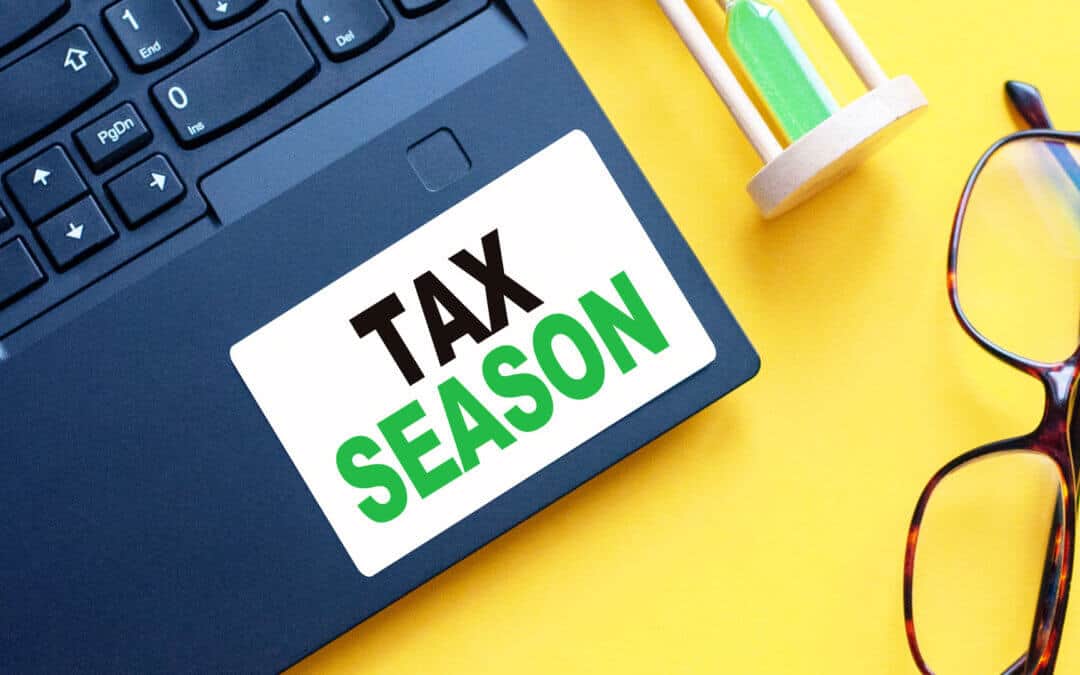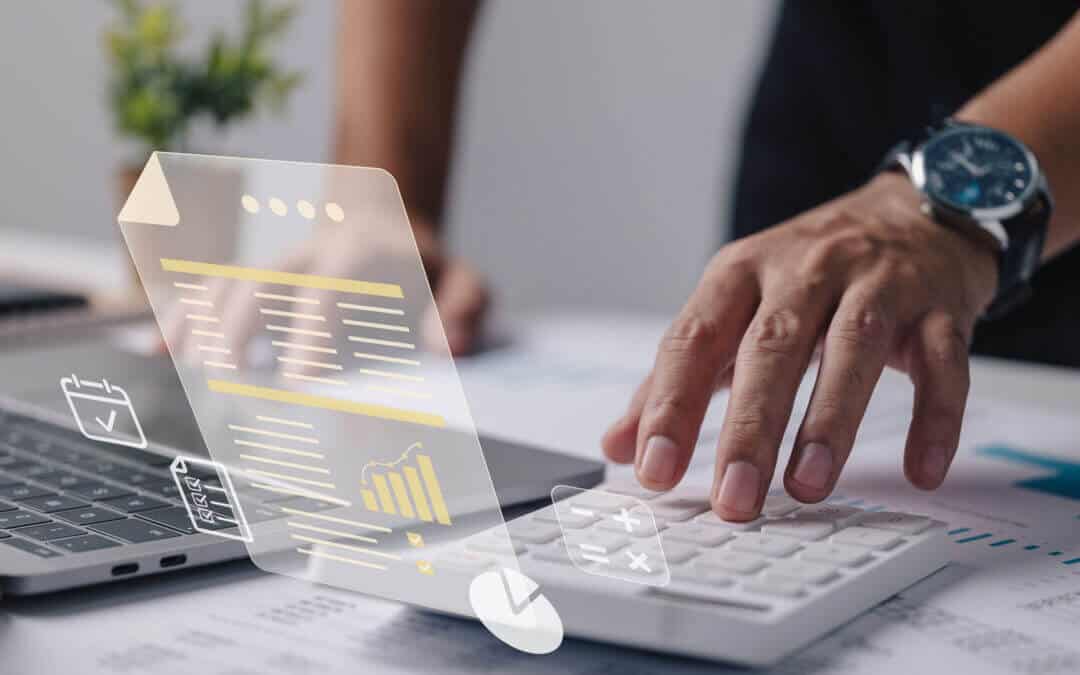
by Ahad&Co CPA | Aug 7, 2022 | Uncategorized
Are you wondering, “what does a CPA do?” We’re here to clarify any questions you have in this guide.
Most people have heard the term CPA but not many know that it stands for Certified Public Accountant. And even fewer people know what a CPA does. So if you are one of the people asking, what does a CPA do, you came to the right place.
Keep reading to learn about the role of a CPA and how they might be able to help you.
What Is a CPA?
A Certified Public Accountant (CPA) is a financial advisor. They help individuals, families, businesses, and other organizations handle everything related to their finances.
CPAs must pass the Uniform Certified Public Accountant Examination to become certified. Some of them have master’s degrees but it is not required to take the exam. Instead, 150 hours of credit hours are required. Most CPAs have experience in accounting, financial planning, or business.
Not all accountants are also CPAs. So, what can a CPA do that an accountant can’t? Keep reading to find out.
What Does a CPA Do?
CPAs have a number of roles, but primarily they handle tax filing. They collect all necessary documentation from the individual or business and can then file state or federal tax returns.
A CPA can also help with financial planning. They can help a business manage their cashflow or set goals for future earnings and savings. They can serve as a general bookkeeper and offer accounting solutions.
The same principles apply to helping an individual. A CPA can help a person save for retirement or a child’s college fund and they can also help with everyday budgeting. Businesses may also hire a CPA for auditing purposes. This is not the same as being audited by the IRS. When a CPA completes an audit they are looking for anything out of the ordinary that could be an issue for the business. However, in the event that the IRS does get involved, a CPA can still be of service. They can even represent you in conversations with the tax board or IRS. They will help alleviate some of the stress for you and your business.
CPAs can execute audits for publicly traded companies in the United States while accountants or bookkeepers cannot. They are considered the most experienced and knowledgeable form of an accountant.
A CPA is also qualified to help a person or group apply for a business and consult on the best way to structure the company. For example, a CPA may recommend an LLC over applying as an S-Corp or a C-corp.
Consider Hiring a CPA
As you can see, a CPA can perform a number of essential services for individuals and businesses. So, what does a CPA do? Essentially, they alleviate the stress of filing taxes and managing every aspect of your finances.
A CPA can add tremendous value to your company and reduce the risk of any mistakes in your finances. They can also serve as a trusted consultant and bookkeeper.
If you’re looking for a reputable CPA to handle your finances, contact us today for more information.

by Ahad&Co CPA | Aug 7, 2022 | Uncategorized
CARES Act: Small Business Assistance
As part of our series of spreading knowledge and helping businesses out there during this COVID-19 crisis, we have gathered information from the CARES Act. This bill was passed on Friday, March 27. Below are some of the most important benefits we feel businesses can take advantage of.
Our firm is assisting with SBA loans mentioned below therefore please let us know to discuss further.
On a side note for businesses located in NYC, the city’s small business service is offering a 40% payroll grant and a no interest $75K loan for businesses. You can find out more information on their official website here.
This blog post will answer the question: What benefits are there for small businesses in the CARES Act?
1. Economic Injury Disaster Loan (EIDL) Expanded and Improved: The EIDL loan offered directly by the SBA (Treasury Department) has been there since the start of of COVID-19 crisis but the CARES Act has made it significantly easier for more businesses to get it. Business can get working capital to pay bills and operating expense up to $2 million of financial assistance with interest up to 3.75%. The bill makes the following changes: Business can get $10K emergency advance if not approved for the loan. Additionally this $10K will not have to be paid back if used for paid leave, maintaining payroll, increased costs due to supply chain disruption, mortgage or lease payments or repaying obligations that cannot be met due to revenue losses. A few others improvements: EIDLs that are smaller than $200,000 can be approved without a personal guarantee, EIDLs can be approved by the SBA based solely on an applicant’s credit score. This loan available to Sole Proprietors, Self Employed and Independent Contractors.
2. Paycheck Protection Loan Forgiveness Program: One of the largest sections of the CARES Act is the most important provision for most small businesses. The Paycheck Protection Program creates a type of emergency loan that can be forgiven when used to maintain payroll through June. The basic purpose is to incentivize small businesses to not lay off workers and to rehire laid-off workers that lost jobs due to COVID-19 disruptions. The amount of the loan is 2.5x your 2019 average payroll. You will not have to pay this loan back as long as employers continue paying employees at normal levels during the eight weeks following the origination of the loan, then the amount they spent on payroll costs (excluding costs for any compensation above $100,000 annually), mortgage interest, rent payments and utility payments can be combined and that portion of the loan will be forgiven.
3. 100% Refundable Tax Credit for Paid, Sick and Family Leave: Employers who pay their employees for leave due to being quarantined because of COVID-19, to take care of a loved one who is affected, or to take care of child due to school being closed, will be reimbursed by the IRS for 2 weeks of pay as a refundable payroll tax credit. The payroll tax credit has some limitations on the amount and varies slightly based on the reason of leave.
4. Net Operating Loss Carryback: Businesses that have net operating losses (NOLs) have some limitations removed. If your business had an NOL in a tax year beginning in 2018, 2019, or 2020, that NOL can be now be carried back five years instead. This may improve cash flow and liquidity for some businesses. Pass-through businesses and sole proprietors will also be able to take advantage of the relaxed NOL limitations.
5. Higher Business Interest Deduction: For 2019 and 2020, the amount of interest expense businesses are allowed to deduct on their tax returns is increased to 50% from 30% of taxable income.
6. Defer Payroll Taxes: Businesses and self-employed individuals can delay their payroll tax payments. The employer share of Social Security tax owed for 2020 can instead be deferred and paid over the next two years. However, fifty percent must be paid by the end of 2021 and 50% must be paid by the end of 2022. (Exception: The ability to defer these taxes does not apply to a business that has a Paycheck Protection loan forgiven.)
Please let us know about if you have any further questions or need further clarification. We are here for you during this difficult time, reach out anytime via email and we’ll be happy to get back to you.

by Ahad&Co CPA | Aug 7, 2022 | Uncategorized
On Friday, March 27th, the Coronavirus Aid, Relief and Economic Security Act known as the CARES Act was signed into law. It is over 800 pages and contains many benefits to taxpayers and businesses. To save you the headache of information overload, we have put together information from parts of the bill that we feel will be most beneficial to taxpayers.
This blog post will answer the question: What benefits are there for individual taxpayers?
- The biggest and most significant benefit is the direct cash payment to taxpayers. Taxpayers making 75K or below will get $1200 (for joint taxpayers it’s $150K or below) plus $500 for every child under 17. If you’re a dependent on someone’s tax return, even if you file your own taxes you get nothing. If your income goes over 75K but under 100K then you will get a reduced check. Once you’re over 100K, you get nothing. This is nontaxable income based on your 2019 AGI. If you did not file 2019 taxes, it will be based on 2018 taxes and if you haven’t filed 2018 taxes, then as of now there is no clarity if you will get the money or not so make sure to file at least 2018 if you haven’t yet.
- Increased and expanded unemployment benefits. For those of you who are on unemployment or may go on unemployment, there is some good news. The amount you get will be boosted. This bill adds $600 per week from the federal government on top of whatever base amount a worker receives from their own state. That boosted payment will last for four months.
- Gig workers, freelancers and self-employed individuals also included. Generally unemployment is not available to those who are self employed but this bill creates a new, temporary Pandemic Unemployment Assistance program through the end of this year to help people who lose work as a direct result of the public health emergency up to $600 a week. You would generally apply for this through your state unemployment website.
- Ability to withdraw from 401-K for Retirement Account without penalties. Eligible individuals can withdraw vested amounts up to $100,000 from tax-qualified retirement plans during 2020 without a 10% early distribution penalty, and income inclusion can be spread over three years. Repayment of distributions during the next three years will be treated as tax-free rollovers of the distribution. The bill also makes it easier to borrow money from 401(k) accounts, raising the limit to $100,000 from $50,000 for the first 180 days after enactment, and the payment dates for any loans due the rest of 2020 would be extended for a year.
- Student Loan Interest delayed. The Department of Education would suspend payments on student loan borrowers, without penalty, through September 30, according to the bill.
- Changes to charitable contributions. The CARES Act allows an individual to make a cash contribution of up to $300 made to certain qualifying charities and deduct the contribution “above-the-line” in computing adjusted gross income. Thus, the taxpayer receives the deduction in addition to the standard deduction. This above-the-line deduction is here for 2020 and beyond. The CARES Act allows such contributions to be deducted up to 100% of AGI for 2020, with any excess contributions available to be carried over to the next five years. In the past you could only deduct charity up to 60% of your AGI.
We understand many people may still have questions about the above items, please do not hesitate to send us an email with your questions and we will try our best to assist. In this times of uncertainty, we want to help in any way possible. Stay safe and stay healthy!

by Ahad&Co CPA | Aug 7, 2022 | Uncategorized
The 2020 tax season is still several months away, but you’ll be gathering paperwork before you know it. Plus, the details of filing 2019 tax returns are still being worked out by the IRS, and it’s never too early to be prepared in advance. To help prevent any surprises between now and then, we’re providing the best tips for the 2020 tax-filing season.
Take a Closer Look at Your Paycheck
Take a minute to double-check the withholding amount on your pay stub. If you’re not having enough tax withheld from your paycheck, you will owe money at tax time. If too much tax is being withheld, you’ll get a refund, but that also means you’ll have more money every payday. If you’re unsure of how much tax to withhold, use the IRS’ tax withholding estimator to evaluate your paycheck and adjust your withholding for 2020, if necessary.
Find a CPA Who Will Help Prepare and File Your Taxes
If you had major changes in your life in 2019, such as marriage, divorce, or starting your own business, your taxes will be more complex. As a result, you’ll need an experienced CPA firm in New York, such as AHAD&CO, to help prepare and file your taxes.
It’s important to not wait until April to make that decision because it could end up costing you. According to the National Society of Accountants, the average fee in 2018-2019 for a professional to prepare and file an itemized Form 1040 with Schedule C (for sole proprietors of a business) and a state tax return was a costly $481.
Max Out Retirement Contributions
If you’ve been on the fence about funding your employer-sponsored 401(k), 403(b) or other tax-deferred retirement account, increase your contributions. The money you put in these accounts reduces your taxable income for the year, which reduces your tax bill. It’s only taxed when it’s withdrawn.
For 2019, contribution limits are $19,000, plus $6,000 in catch-up contributions if you’re 50 or older. For 2020, limits are increased to $19,500 and $6,500 in catch-up contributions. If you have an IRA through a broker or bank, contribution limits for 2019 and 2020 are $6,000 plus $1,000 in catch-up contributions.
For those who can’t afford to make the maximum contributions, try to contribute the amount that will be matched by employer contributions. Those funds are also tax-deferred and grow tax-free.
If You’re Itemizing, Consider the Bunching Method
The standard deductions are double what they used to be, making it hard to itemize. The 2019 deductions are:
-
- $18,350 for heads of household
-
- $24,400 for married couples filing jointly
Taxpayers who don’t have enough deductions to surpass those thresholds take their standard deduction. The bunching method is when you time expenses by pushing deductible expenses into the same calendar year. For example, doubling charitable contributions, or accelerating tax deductions such as property taxes, or medical bills.
As an individual, just calculating how much in taxes you owe is not enough. As a business, a pivotal part of success is having an expert accounting team to handle all your business tax matters. Whether you’re an individual with unique needs or a business, we have all the resources to help you navigate the IRS tax code with ease, along with a host of other tax services. Contact us today for a free consultation and see how we can work together.

by Ahad&Co CPA | Aug 7, 2022 | Uncategorized
Does your business have a Chief Financial Officer (CFO)? You may think your business is too small for this official-sounding position – but it’s not. In fact, it’s a crucial part of your business’s overall financial stability. Regardless of if you run a smaller business or a medium-sized company, your CFO is going to oversee the audit prep, accounting, financial reporting, and other financial aspects and business tasks, which will help to take your business to the next level.
Now that you know the importance of this position, the question is – should you hire an in-house or a virtual CFO? While this is something you need to consider carefully, there are several benefits offered by hiring an outsourced CFO, which can be found here.
Outsourced Services Save Money
If you hire an in-house CFO, you are going to (likely) pay them a six-figure salary – even for a small business. However, it’s not just the salary that has to be considered. You also have to pay taxes, benefits, and work-related resources.
As there are a lot of different forms of loans in addition, there are lots of diverse kinds of repayment. Paying off student loans might appear impossible but there are ways you may help out with essay writing service. Finding a student loan will offer help. Student loans are a fantastic ways to cover your faculty. Student loans are just like a car loans or home loans since it should be repaid to the lending firm. Several federally backed student loans are readily available to people with little if any credit.
The loan isn’t given on the grounds of fiscal need. Student loans are a truly convenient method of meeting our academic dreams. They are available with a broad range of lenders. There are a number of student loans available from a number of diverse lenders.
However, if you outsource a CFO, it means you don’t have to pay a full-time salary, taxes, benefits, or other work-related resources. In fact, in this arrangement, you only have to pay the CFO when they actually work.
If you run a small or medium-sized business, hiring an in-house CFO will likely put a financial strain on your organization. However, if you opt for outsourced services, you can save money and put it where it is most needed – back in your business.
Outsourced Services Save Time
Any position in a small or medium-sized business requires the person to wear an array of different hats. As a result, an in-house CFO is going to spend a lot of their time handling tasks that don’t always relate to the financial goals of the business. This may be disastrous if the CFO isn’t able to focus on the tasks they were originally hired for.
With an outsourced CFO, this person only focuses on handling the business’s financial data. Due to this, the CFO doesn’t have to be “present” all the time. Also, there’s no way they can get pulled into another task or project.
Gain Improved Control and Reduced Risk of Fraud with Third-Party Financial Management
When the CFO is working in-house, it means that they are collaborating and working with all the members of the team. They can also help when needed. While this can be a good thing, it may also mean that data, passwords, information, and more is freely shared. Even if it isn’t freely shared, the risk that other employees will gain access to sensitive and confidential financial data is higher.
With an outsourced CFO, the company has more control over their financial information. In this position, the CFO can delegate access when needed and reduce fraud, improving the business’s data integrity and security. If you are interested in hiring an outsourced CFO, contact us today. Our team will provide you with the quality services you need and ensure you experience all the benefits and advantages mentioned here.

by Ahad&Co CPA | Aug 7, 2022 | Uncategorized
How to Prepare for Tax Season and Why It’s Important to Do It Early
Are you wondering how to prepare for tax season? We’re here to break down why you need to prepare early.
Did you know that up to 25% of Americans wait until the last 2 weeks of tax season to file their return? If you are a procrastinator, you are in good company.
Unfortunately, it’s not ideal to wait so long to file your taxes. There’s a greater chance of running into issues regarding filing. Plus, you might realize you have missing documents and don’t have enough time to request them.
The best thing to do for a smooth tax filing is to prepare for tax season early. Not only does this help your CPA, but this helps you in more ways than one. At the very least, you get it over and done with, removing unnecessary stress.
If you are looking to get a headstart on tax time for greater peace of mind, follow this short tax checklist.
What Do I Need to File My Taxes?
The first thing you’ll need to do to prepare for tax season is to collect all of the relevant documents. Whether you are doing your own taxes online or letting your CPA handle them on your behalf, having all of your documents together in one place will save time and frustration.
For most people, simply follow this tax document checklist:
- Copy of last years return
- Tax form W2 for employed earnings
- Tax form 1099 for self-employment income
- Deduction records – if you plan on taking deductions for anything, such as medical expenses, interest paid on loans, business expenses, or more, save those records
There are many other possible forms and records required. Check out the latest IRS guidelines for more.
Set Your Expectations
Next up, it helps to have an idea of what you might have to owe, or how much you might receive in return. If you are going to owe money, it sure helps to be aware ahead of time so you can adjust your budget accordingly. Nobody likes a surprise bill.
To do this, take a look at your paycheck to see how much is withheld for taxes. If it isn’t enough, you should expect to owe money. Does it feel like you are paying too much?
You might be in for a nice refund.
Use the IRS tax withholding estimator to get an idea of what should be withheld with each paycheck, and adjust if necessary. After doing that, you can also determine if you qualify for any tax deductions or credits. Take a look at the most common tax deduction checklist to determine what you qualify for.
If you don’t qualify for too many deductions, it might make more sense to take the standard deduction, making everything easier and faster. For some people, however, it’s worth taking the time to itemize deductions, as this will
result in a greater return. Your CPA will likely help you determine the best option for you much quicker.
It’s Not That Hard to Prepare for Tax Season
Whether you are an overachiever, trying to get ahead of the game, or simply trying to avoid unnecessary stress, it’s pretty easy to prepare for tax season. It also helps that we do it every year. So it should get easier and easier. Once you have an idea of how much you might be getting in return or having to pay, and you have your documents organized, you can take the last step.
Schedule an appointment with your CPA sooner rather than later. They’ll appreciate it, and you’ll cross one more thing off your list.







